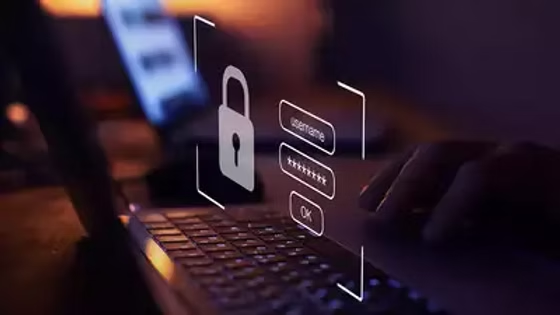
The Future of Cybersecurity: Trends to Watch
As technology evolves, so do cyber threats. Cybercriminals are becoming more sophisticated, using artificial intelligence, automation, and new attack methods to exploit vulnerabilities. To stay ahead, businesses and individuals must adapt to the latest cybersecurity trends. Here’s a look at key developments shaping the future of cybersecurity.
1. Artificial Intelligence (AI) and Machine Learning in Cybersecurity
AI is revolutionizing cybersecurity by enabling faster threat detection and response. Machine learning algorithms analyze vast amounts of data to identify unusual patterns and predict cyber threats before they happen. However, cybercriminals are also using AI to automate attacks, making AI-powered defenses a necessity.
🔹 How AI is Enhancing Cybersecurity
✔ AI-driven threat detection identifies anomalies in real-time.
✔ Automated security responses prevent cyberattacks faster.
✔ Machine learning enhances fraud detection in financial transactions.
🔹 The Risk: AI in the Hands of Hackers
🚨 AI-generated phishing emails are harder to detect.
🚨 AI-driven malware adapts and evolves to bypass security measures.
2. The Rise of Zero-Trust Security
The traditional security model assumes that users inside a network are trustworthy. Zero-trust security eliminates this assumption by requiring continuous verification for every user, device, and application trying to access a system.
🔹 Key Principles of Zero-Trust Security
✔ “Never trust, always verify” approach.
✔ Multi-factor authentication (MFA) for all access points.
✔ Least privilege access—users get only the permissions they need.
Zero-trust is becoming a standard for businesses looking to protect their sensitive data against insider threats and external attacks.
3. The Threat of Quantum Computing
Quantum computing has the potential to break traditional encryption methods, posing a massive risk to data security. While still in its early stages, quantum computers could make current encryption algorithms obsolete, allowing hackers to crack passwords and decrypt sensitive information within seconds.
🔹 How Cybersecurity is Preparing for the Quantum Era
✔ Development of post-quantum encryption algorithms.
✔ Governments and tech companies investing in quantum-safe security.
✔ Transitioning to quantum-resistant cryptography before it’s too late.
4. Ransomware Attacks Will Become More Sophisticated
Ransomware attacks are increasing, targeting businesses, hospitals, and even government institutions. These attacks encrypt data and demand ransom payments, often leaving victims with no choice but to pay.
🔹 Future Trends in Ransomware Attacks
✔ Ransomware-as-a-Service (RaaS) – Hackers selling ransomware kits to others.
✔ Double Extortion – Threatening to leak sensitive data if ransom isn’t paid.
✔ AI-Powered Ransomware – Smarter malware that adapts to security defenses.
The best defense against ransomware is regular backups, strong endpoint protection, and employee awareness training.
5. IoT Security Risks Will Increase
The Internet of Things (IoT) is expanding, with billions of smart devices connecting to the internet. While convenient, IoT devices often lack strong security, making them an easy target for hackers.
🔹 Why IoT is a Cybersecurity Concern
🚨 Many IoT devices have weak passwords and lack encryption.
🚨 Hackers can use IoT devices to launch botnet attacks.
🚨 Medical devices, smart homes, and industrial IoT are at high risk.
🔹 How to Secure IoT Devices
✔ Change default passwords and use strong authentication.
✔ Regularly update device firmware and software.
✔ Use a separate network for IoT devices to limit access.
6. Privacy Regulations and Compliance Will Tighten
Governments worldwide are enforcing stricter data protection laws, making cybersecurity a top priority for businesses. Regulations like GDPR (General Data Protection Regulation) and CCPA (California Consumer Privacy Act) require organizations to handle data responsibly and protect user privacy.
🔹 Future of Cybersecurity Compliance
✔ More countries adopting strict data protection laws.
✔ Heavy fines for companies failing to secure user data.
✔ Increased use of encryption and data anonymization.
Businesses must ensure they comply with privacy regulations to avoid legal consequences and maintain customer trust.
Final Thoughts
The future of cybersecurity is constantly evolving as cybercriminals find new ways to exploit vulnerabilities. AI-driven security, zero-trust models, quantum-safe encryption, and stronger IoT protection will be essential in combating future threats. Staying informed and implementing proactive security measures will be crucial for businesses and individuals alike.
🔹 Key Takeaways:
✔ AI and machine learning will play a major role in cybersecurity.
✔ Zero-trust security will become the new standard.
✔ Quantum computing poses risks to encryption.
✔ Ransomware will become more advanced.
✔ IoT security must improve to prevent large-scale attacks.
✔ Compliance with global privacy laws will be mandatory.